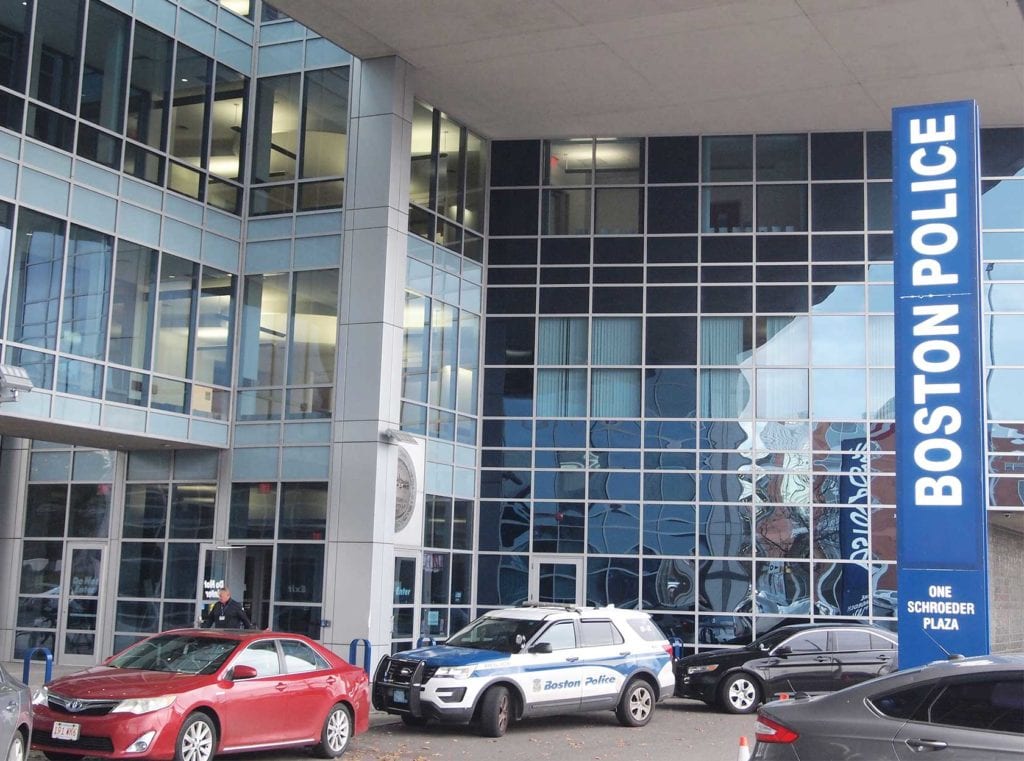Police Task Force holds first listening sessions
Mayoral-appointed group takes up body cameras, implicit bias

In two public listening sessions last week, Boston residents questioned the Boston Police Reform Task Force about body cameras and implicit bias training. The first of four planned listening sessions, these two were held via video conference on July 22 and 23 with the 11 members of the task force.
Though many attendees raised questions and suggestions, the goal of the sessions is not to provide answers, but for task force members to simply listen and take note. Many participants’ comments were followed with silence until another was ready to testify. Those with suggestions could virtually raise their hand or submit written questions and testimonies.
“The Task Force is here to listen. I’m trying to keep the conversation going for not too much dead air, but hopefully I’m not sharing my personal views,” said Darrin Howell, task force member and president of the community organization DRIVE Boston, after encouraging more suggestions halfway through the session.
Some of the main concerns expressed in the first session included how the public gets access to body-worn camera (BWC) footage, how it is used within the police department, and what disciplinary actions are in place for officers who do not use their cameras.
In response to some inquiries about data, some was provided. Task force member and Boston resident Jamarhl Crawford posted an analysis of body camera usage from 2018 in the virtual chat room for attendees to read. The study by Northeastern University revealed that officers with body cameras received fewer complaints from citizens and generated fewer use-of-force reports.
Attendee Chad Fletcher presented a few questions, including “How will the city of Boston and how will you as a Task Force determine what a violation of the BWC policy is and what isn’t a violation of the body-worn camera policies?”
Massachusetts Association of Minority Law Enforcement Officers (MAMLEO) President Eddy Chrispin, a member of the task force, attended both listening sessions and gave feedback to attendees. When asked how officers’ usage of body cameras is tracked, he answered, “If I can track that you were dispatched to 50 calls over the last three or four days and you don’t have any body camera footage, that would be concerning. That would be an indication that you’re not turning on your camera.”
Mayor Martin Walsh announced the creation of the task force last month. The other task force members are Chairman Wayne Budd, former U.S. Attorney; Tanisha Sullivan, president of the NAACP Boston branch; Allison Cartwright, attorney in charge at the Roxbury Public Defender’s Office; Joseph Feaster, Jr., Urban League of Eastern Massachusetts board chairman; Superintendent Dennis White, chief of staff of the Boston Police Department; Reverend Jeffrey Brown of Historic Twelfth Baptist Church in Roxbury; former state Rep. Marie St. Fleur; and Javier Flores, partner at Dinsmore & Shohl.
The group’s next two sessions, on July 29 and 30 at 3:00 p.m., cover the Community Ombudsman Oversight Panel and use-of-force policies. The group is expected to submit recommendations to the mayor by August 14.
“We’re flying the plane while building it, so please bear with us on some of the challenges,” said Howell. “We’re learning together and growing together. But that was definitely helpful feedback.”






